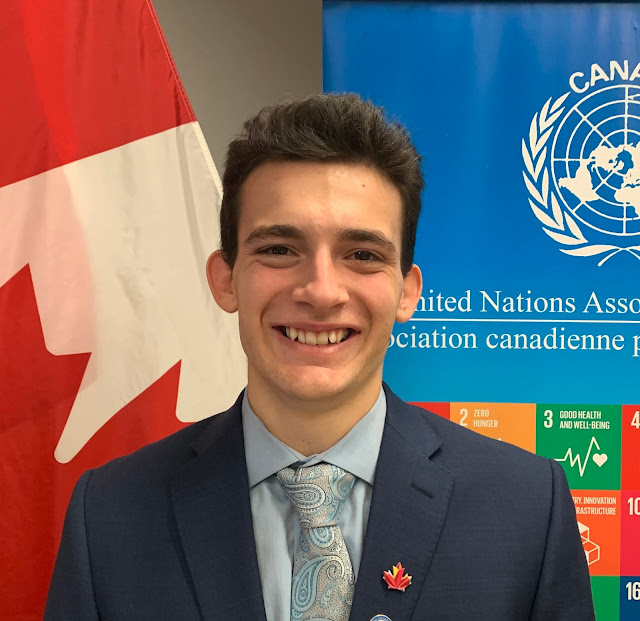Ambika Opal's Journey at UNDP Cambodia: Sleepwalking through climate action
Written by Ambika Opal
Every day a single copy of the local
newspaper the Phnom Penh Post makes a long journey through my office at UNDP
Cambodia. It arrives on the Resident Representative’s desk, is then passed to
the Deputy Resident Representative, then to me, then to a colleague in the
neighbouring office to fill out the crossword, and beyond. In Cambodia there
are no formal recycling systems, so we must be very mindful of creating waste.
It is refreshing to be a part of an
organization that recognizes the urgency of the climate crisis and is willing
to take difficult steps forward. At UNDP Cambodia, the largest share of our
carbon emissions come from air travel. Air travel is often neglected in climate
discussions — it’s regularly dubbed an impossible-to-solve transboundary issue,
assumed as a necessity, or considered neutralized by carbon offsets. But in the
office we are tackling this challenging issue by having discussions on not
hosting international workshops, no longer using domestic flights for field
missions, and providing financial incentives to employees who forgo
international events. UNDP Cambodia also has a rooftop solar system (although
it has yet to be turned on, as the office negotiates some regulatory issues),
is in the process of buying bicycles and electric motorbikes for staff to use,
and has banned single use plastics at all events sponsored or supported by
UNDP.
Cambodia is extremely vulnerable to
climate change impacts, particularly river flooding, droughts, and irregular
weather patterns. The majority of Cambodians work in climate-sensitive sectors
such as agriculture, forestry, and fisheries, so climate change poses a
significant threat to their livelihoods. Cambodia is one of the most bio-diverse
countries in Southeast Asia, and many species are being threatened by climate
change impacts. Climate change is also a great health risk, as lives are claimed
from rising temperatures, extreme weather events, and increased transmission of
infectious diseases.
Alongside UNDP Cambodia’s internal
efforts to address climate change, we also have a number of projects designed
to strengthen Cambodian institutions in the fight against climate change. The
Cambodia Climate Change Alliance, supported by the European Union and Sweden,
project supports climate change governance in Cambodia. The Forest Carbon
Partnership Facility project is helping reduce emissions from deforestation by
working with communities to build sustainable forestry practices, monitoring
deforestation through remote sensing, and helping the government prepare for
REDD+ implementation. The Early Warning Systems, a Global Environment Facility
project, is supporting Cambodian institutions in installing 54 online climate
and weather monitoring stations across Cambodia, which will be used to make
more reliable weather, climate, and disaster predictions. And UNDP Cambodia has
many more projects dealing with solar energy, waste management, natural
resource management, and beyond.
As much as I am heartened by the
successes and mindset of the UNDP, I continue to be disappointed by many other
global actors who seem to be ‘sleepwalking’ through the climate crisis, as one
colleague aptly put it. The UN Climate Action Summit this past September was
the most recent instance of compelling words but lukewarm commitments, at what
was intended to be the time to bring forward radical and urgent plans to
address climate change. It’s time to wake up to the climate crisis — having
difficult conversations and building local capacity, as we’re doing in UNDP
Cambodia, are two important steps.



Comments
Post a Comment